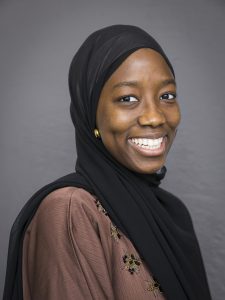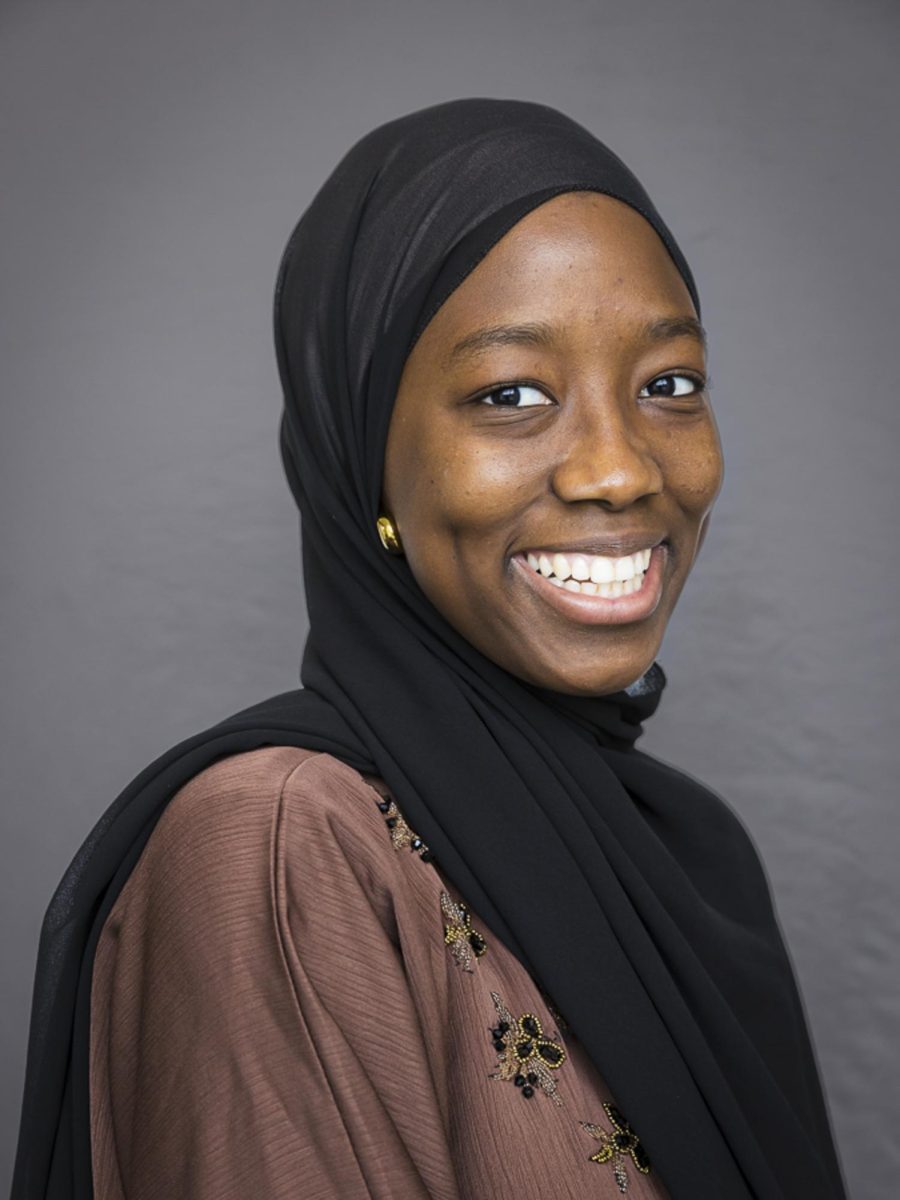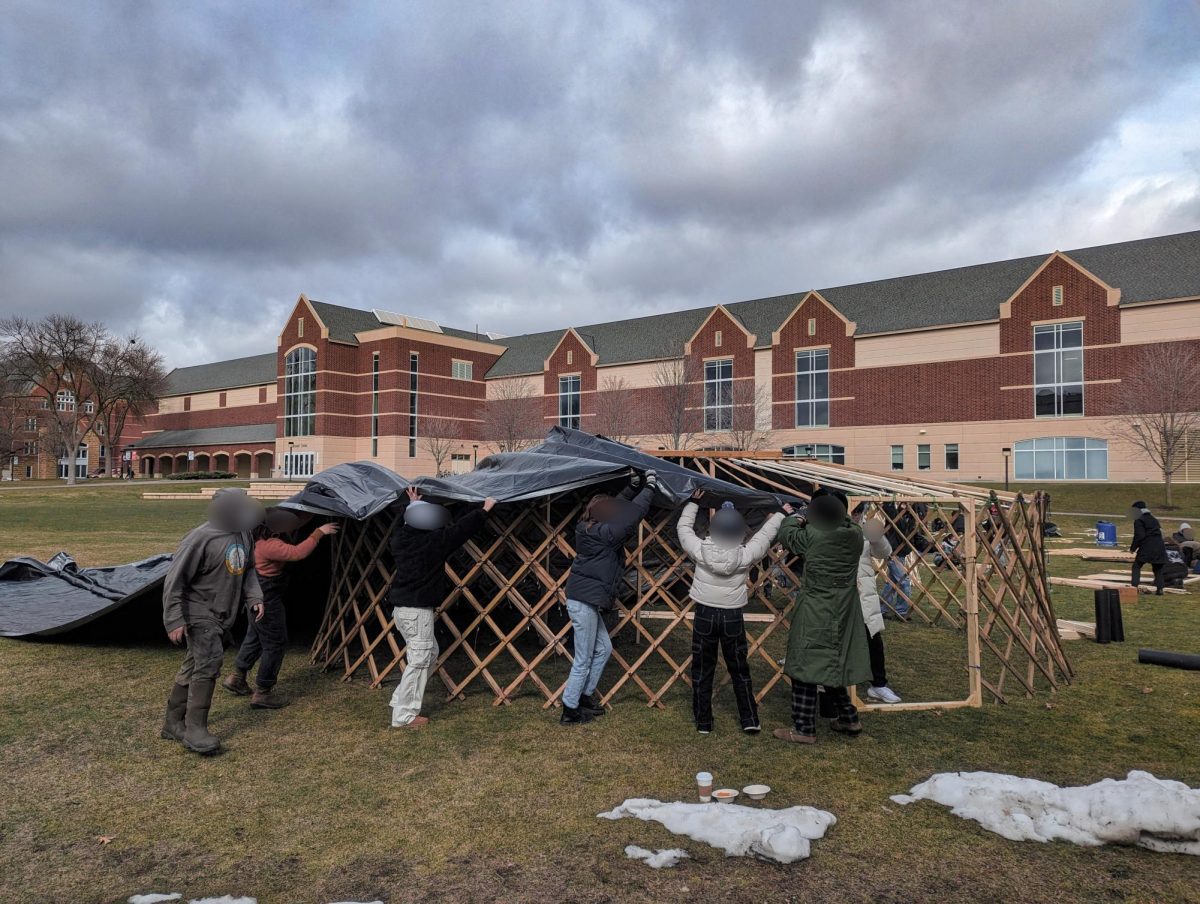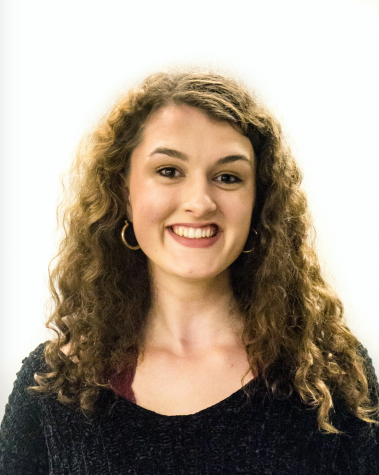Macalester faculty, students and guests from around the Twin Cities gathered in the Alexander G. Hill Ballroom last Friday night for the annual Mahmoud El-Kati Distinguished Lectureship, this year featuring Dr. Marc LaMont Hill.
The Lectureship was established in 2006 to honor former Macalester professor Mahmoud El-Kati’s 33 years as a lecturer, writer, and commentator on the African-American experience. This lecture takes place every other year.
Hill is currently the Steve Charles Professor of Media, Cities and Solutions at Temple University, a host on BET News and a political contributor for CNN. His research focuses on the intersections between culture, politics and education in the United States and the Middle East.
As part of his research, Hill spends much of the year living in the Middle East reporting on and investigating the social issues faced by Palestinians. While he’s in the U.S., Hill engages in political activism to combat white supremacy and authoritarianism.
Hill began his lecture with anecdotes describing his activism in Ferguson, Missouri after the murder of Michael Brown in August 2014. He emphasized the popular mobilization of people of all ages against the city’s law enforcement practices in the wake of Brown’s death.
“Even though [Michael Brown] died on August 9, the real story of Ferguson is the story of August 10,” Hill said. “That day, we mobilized. People came from all over the world to resist, push back and fight to demand justice. So I stayed. The officers tried to keep us out, but we kept mobilizing. We realized that the state power was ubiquitous.”
Hill said that he quickly started to see parallels between the struggles in Ferguson and Palestine. During the first week of protest in Ferguson, he began to hear from journalists in the Middle East.
“While we were being tear-gassed, you could see teenagers, just gasping for air, the elderly folk just trying to survive, and we didn’t know what to do,” Hill said. “But, I remember, on that night [Palestinian-American writer] Mariam Barghouti sent us a tweet from Ramallah.
“She said ‘Wash your eyes out using milk. You can wrap your face with a t-shirt; run toward the wind, so that when the wind hits your face, it will sting a little bit, but it will stop the tear gas from getting in your eyes.’ She was saying ‘Here’s how you survive state power!’”
“We got tweets from Gaza, we got tweets from Ramallah, and we got tweets from that entity known as Israel,” he continued. “That’s when I realized we really are all connected.”
Hill noted that the international awareness around the Palestinian-Israeli conflict also increased over the summer of 2014, as journalists began to report more frequently on the number of bombings Israel inflicted on Palestine and the brutal violence faced by landless Palestinians.
These conflicts playing out simultaneously, he said, increased solidarity between black Americans and Palestinians.
“The same time that August 9 was happening in Ferguson, Gaza was under attack,” Hill said. “The world started to see the children dying in front of hospitals and schools and YMCAs, the older people struggling for life.
“That summer, the world was finally looking,” he continued, “and suddenly, Palestinians in Palestine and black folk in the United States were in conversation with one another, asking, ‘What would it mean for us to stand up and fight together?’”
As the lecture went on, Hill touched on the history that connects black Americans with groups in other nations struggling against white supremacy – pointing to pan-African and black nationalist movements that gained traction around the world in the mid-twentieth century.
“Back then, black folk understood that their freedom isn’t going to rest purely in America, but that they had to look outside the shores of America to understand themselves as global citizens,” Hill said.
“That’s why Marcus Garvey and the UNIA understood the Zionist movement,” he continued. “It wasn’t so much that he was down with the oppression of Palestinians as much as he had an understanding of a return home for black folk, who were catching the L here, and the fact that they could go somewhere for a unified pan-African identity.”
After Hill concluded his lecture, he opened the floor for questions. The President and Vice President of the Minneapolis Chapter of the NAACP, Anika Bowie and Leslie Redmond respectively, stood and asked how local black people can activate their fellow community members to show support for Palestine.
“A global understanding is linked to progress,” Hill replied. “There’s a direct relationship between the suffering in those places and the suffering in the south side of Chicago and Philadelphia. Our understanding has to be global, because the problem itself is global.”
Near the end of the question-and-answer session, former Macalester professor Dr. Mahmoud El-Kati, for whom the lectureship was named, stood up and spoke to Hill.
“People like you, you keep me optimistic,” Mahmoud said. “I can tell that there’s a coming generation of people who are going to step outside the boundaries, about how we think and feel about the rest of the world.”
Hill finished by offering a general piece of advice to all of the young black men in the room.
“My young brothers, remember that around the world, there is no doubt a project out there to tell you that your body doesn’t matter, to extinguish in you a fire that they know is there so that you don’t know it’s there,” he said.
“You are vulnerable, and you are in danger, but I want you to know that you can still love each other, and build community with one another,” he continued. “I want you to love each other in ways that make you more whole, and more human. God bless you.”















Joe Edmunds • Sep 5, 2019 at 5:55 pm
Good way of telling, and fastidious piece of writing to get data concerning my presentation subject matter, which i am going to present in university.
Desirae Geary • Jul 23, 2019 at 1:53 pm
Mass parsite http://bit.ly/2W9CVkn